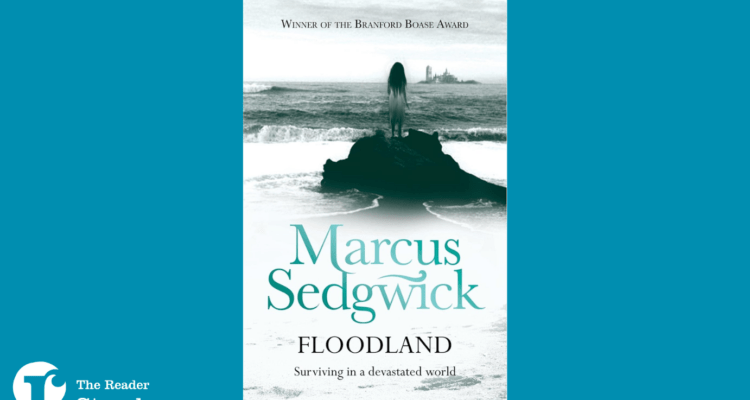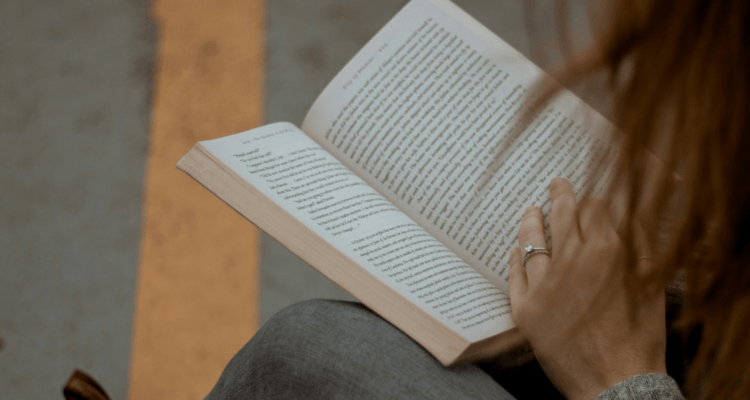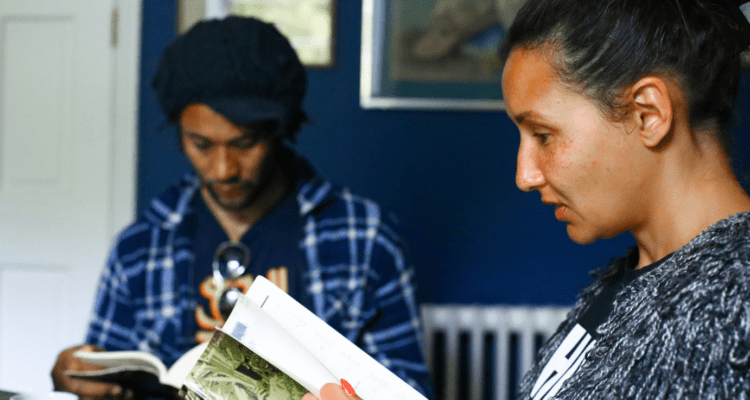The Temple of Serendipity
Brad Bigelow recalls skipping classes to go to the library.
Somewhere around my third week in college I looked up at my calculus professor and realized that he never took attendance. In fact, none of my instructors took attendance. This came as a great revelation: I was free to leave. So I quietly got up, shouldered my bag, slipped out the back exit, and walked across the square to the library. I walked up to the third floor, back into the stacks, and spent the rest of the hour browsing through the modern English literature section. It was as if I'd been stuck in prison for years and one someone had tapped me on the shoulder and whispered, "Look: the gates are open."
I forget now what book I selected and took to read for a few minutes in a quiet carrel. But I returned to that floor again the next day, and most other days when there wasn't an exam. I would find a new stretch of shelves, scan them over until I found something interesting, then take my discovery over to an empty desk and read for three quarters of an hour.
I'm sure it was within the first week or so that I found an orange-ish volume titled, The Best of Myles. It was a collection of old newspaper columns written by one Brian O'Nolan, AKA Flann O'Brien. It resembled nothing I'd ever seen in a newspaper: shaggy dog tales that ended in atrocious puns ('Foal rush in where Engels feared to tread') and catechisms of clichés ('When was our friend not born?' 'Yesterday.'). I kept stifling great guffaws as I read. To think such wonderful things were hiding among these millions of sober volumes.
For the next four years, I came here to escape from dull lecturers and tedious papers. I ventured from English into other literatures. I remember my delight in opening Queneau's Cent Mille Milliards de Poèmes and finding it full of nothing but little paper feathers, each with a single, lovely line of poetry. I remember thumbing through H.C. Artmann's Der aeronautische Sindbart, desperately wishing I could read German, since it just looked like such a fascinating story (I still long for it to be translated).
I wandered into history, once finding a gruesome book from 1939 depicting what it claimed were Polish atrocities against innocent Germans. The victims shown in horrifying detail must, of course, have been Poles slaughtered in the first weeks of World War Two, but to see how meticulously and soberly they were turned into misinformation and propaganda was truly chilling.
I wandered into the aisles of oversized books, once finding many volumes of a weekly newsheet published in New York City listing the details of all the ships that arrived and departed. 'SS : Left Dakar 18 April 1936. Arrived 7 May. Sorghum. 6 Pass.' Every entry created a story. I read New Yorkers from the 1950s just for the ads ('Nightly in the Arbor Room of the Hotel Louise: Ray Romero and his Magic Harp'). I sampled news magazines from New Delhi and issues of Soviet Life. I discovered George Ade's fables and Max Ernst's collage novels, official accounts of Korean War combat trauma, airplane crash reports, and railroad trade journals from the turn of the twentieth century. Even so, I never felt that I more than scratched the surface. Though I spent an hour with the Illustrated London Weekly from 1912, I never got to sample 1933 or 1894, or the German film magazine thirty feet further along the shelves, or the French encyclopedies.
I sometimes now picture a classroom and try to remember what I studied there. Number Theory, perhaps. I can't recall the first thing about it. But I vividly picture the wrinkled coarse newsprint and fastidious prose style of the News of India and the portrait of Chauncey Depew opposite the title page of his two-volume collection of speeches. And I still feel, when stepping into a good library, as if someone is tapping me on the shoulder and whispering, 'Look, the gates are open.'
___
Brad Bigelow is the editor of the excellent Neglected Books page.
Share
Related Articles

The Storybarn Selects… From The Reader Bookshelf
Our last deep dive into the 2023/24 Children and Young People's Reader Bookshelf is a review of Floodland by Marcus Sedgwick…

March’s Stories and Poems
March’s stories, extracts and poems have been chosen on the theme ‘Moving on’, which perhaps feels especially relevant as we…

February’s Stories and Poems
February’s selection of stories, extracts and poems have been chosen on the theme of ‘Making connections’. We spend so much…


